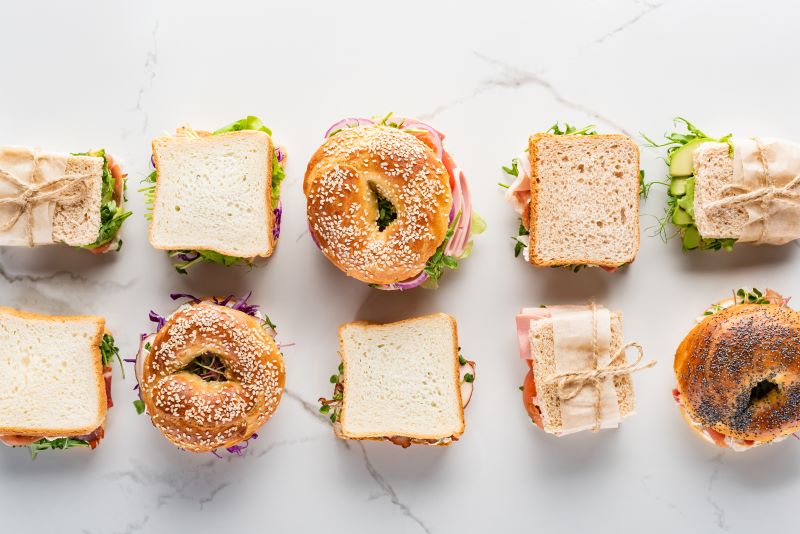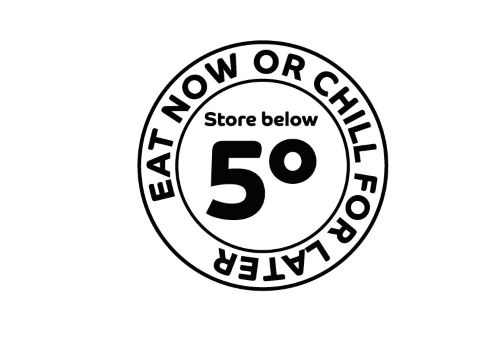Changes to Patient Feeding Supply Standards
Overview of the changes
The latest update
The British Sandwich Association Guidelines – Update on the use of frozen sandwiches.
To allow the recent patient sandwich guidance to settle in, and to encourage complete safety standards on temperature control across healthcare sites, it is advised not to agree to a frozen sandwich concept from suppliers.
There may come a time when this advice changes, but we advise that going forward there should be a focus on current supply, and improving the quality of services.
Please reach out to your relevant Food Account Manager if you have any questions.

Patient Feeding Supply Standards – Christmas Deliveries, NHS Supply Chain: Food
The British Sandwich and Food to Go Association (BSA), along with NHS Supply Chain: Food and NHS England, have recognised the challenges regarding the reduction of patient feeding shelf life on sandwiches over the Christmas period.
In recognition of the challenges with shelf-life over the Christmas period, it has been agreed the deliveries on the 24 December 2025 will carry a shelf life of P+3 (meaning Production plus 3 days), as there will be no deliveries made on the 25 December. This will allow product to be consumed until midnight on 26 December. Deliveries will recommence on 27 December with the standard P+2 shelf life (meaning Production plus 2 days).
All products will be labelled accordingly with the applicable use by date. This is on the understanding hospitals will ensure that products managed to maintain the chill chain from delivery through to patients.
Deliveries will be made on 31 December with the standard P+2 and recommence on 2 January 2026.
Summary of Christmas period shelf life adjustments
24 December 2025 Deliveries
- Shelf life extended to P+3 (consume by midnight on 26 December).
- No deliveries on 25 December.
- Important: Hospitals must maintain the chill chain to ensure food safety.
27 December Deliveries
- Resume with standard P+2 shelf life.
31 December Deliveries
- Standard P+2 shelf life.
2 January 2026 Deliveries
- Resume as normal.
Our Advisory Note on this page details everything you need to know about the changes, and if you are unsure of anything you can reach out to your Local Food Account Manager.
See our Useful Links section to see the list of Food Account Managers and the regions they cover.
The British Sandwich and Food to Go Association (BSA), along with NHS Supply Chain: Food, have worked closely together to drive positive change within patient feeding. These changes are endorsed by the Food Safety Association (FSA), NHS England, Hospitals Caterers Association (HCA) and the British Dietetic Association (BDA).
Given the risks posed by Listeria Monocytogenes (LM) to vulnerable groups (defined in our Advisory Note), it has been unanimously agreed that the following restrictions should be implemented regarding the provision of sandwiches and chilled ready-to-eat foods (containing the excluded list of ingredients in the Advisory Note) to all patients. The risks amongst vulnerable groups across all NHS trusts is our number one priority, and working towards better patient safety is our communal goal.
Taking effect from Monday 6 October 2025 these changes will affect:
- Maximum shelf life.
- Excluded ingredients.
- Clear temperature labelling.
- Manufacturing standards.
We’re here to help your trust
We put patient safety at the centre of everything we do here at NHS Supply Chain: Food, and take pride in the steps we are taking, to enhance that goal. This partnership is a very positive and welcome step change towards driving patient safety within NHS sites.
Kirstin Morris, Business Director at NHS Supply Chain: Food
Patient safety is our highest priority. We have a shared responsibility through our suppliers and healthcare teams, to manage food safety with strict and consistent standards. These changes bring together our collective expertise to ensure that the purchasing, preparation, and service of high-risk foods are carried out responsibly and collaboratively.
Phil Shelley, Senior Operational and Policy Manager, NHS England
Advisory Note
For the supply of sandwiches and chilled ready-to-eat foods for patients in hospitals and other healthcare settings with effect from Monday 6 October 2025.
In view of the risks from Listeria Monocytogenes (LM) to vulnerable groups it is unanimously agreed by the BSA members that the following restrictions be placed on supplying sandwiches and chilled ready-to-eat foods for patients, where these groups might be at risk.
Maximum shelf life
Products must not have a shelf life exceeding production plus two days. This is in line with advice issued by NHS Estates and Facilities in 2019. It also aligns with the Food Standards Agency advice issued in 2018.
See our Useful Links section to view the guidance for healthcare and social care organisations on how to reduce the risk of vulnerable groups contracting listeriosis.
Excluded ingredients
Ready prepared sandwiches, salads and chilled foods must not contain any of the following potential carriers of LM:
- Raw onions, spring onions and chives.
- Fermented meats – chorizo and salami.
- Cold smoked salmon.
- Cooked shellfish.
- Soft cheese, mould-ripened and veined cheeses.
- Pâté.
Clear temperature labelling
All sandwich packs supplied for patients must be clearly marked with the following instruction:

The reasons for the changes
It is not possible to completely eliminate LM from chilled foods, even in hospital kitchen environments, as LM is present naturally in the environment. Whilst reputable sandwich and chilled food suppliers go to considerable lengths to eliminate LM from their products it is impossible to completely eradicate it, particularly where specific ingredients are known to be carriers.
Low levels of LM are not considered a risk to most consumers. However, the high temperatures in many healthcare environments, and the time that products may be out of chill during distribution within a hospital before reaching patients means that even very low levels can grow to become more challenging.
Restricting shelf-life to two days; maintaining temperatures at or below 5C (five degrees Celcius) during distribution and removing higher risk ingredients are key factors in controlling the risks.
Vulnerable patients
Vulnerable groups are defined by the Food Standards Agency as including, but not limited to, cancer patients, patients undergoing immunosuppressive or cytotoxic treatment, unborn and newly delivered infants, pregnant women, people with diabetes, alcoholics (including those with alcoholic liver disease) and a variety of other conditions. Immune system capacity decreases progressively in the elderly, so elderly individuals are also included in this group.
Manufacturing standards
It is equally important that those supplying sandwiches and chilled foods into hospital and healthcare settings meet the standards necessary to provide the assurances needed to minimise the risks to patients. At a minimum these should include all of the following:
- A BRCGS audit standard of at least A grade.
- An STS healthcare audit, conducted by Micron2, including the new Listeria Management Module.
- Evidence of sufficient (at least weekly) and regular planned testing for LM over at least three months.
It is strongly recommended that suppliers are able to provide evidence that they meet the above standards before being allowed to submit tenders for patient feeding.
Note: If independent clarification is needed the understand test results, the British Sandwich and Food to Go Association can provide this via an independent consultant. Please contact BSA Director Jim Winship – jim@sandwich.org.uk
Delivery
All BSA members must ensure that sandwiches and chilled foods are delivered to hospital and healthcare customers at a maintained temperature at or below 5C and must be able to support this through their data loggers to the point of acceptance.
Each delivery must be signed for by an authorised representative of the customer to confirm the delivery is:
- not damaged.
- at or below 5C as tested with a temperature probe by the customer’s authorised representative.
Upon delivery the customer needs to immediately take responsibility for the delivered product, and must ensure that they are placed in a chiller operating at or below 5C, and that this temperature is maintained until consumption of the product by patients.
Contacts
It is important, particularly with products that have a short shelf-life, both for customers and suppliers that a direct contact is established as part of the contract so that quick action can be taken if there are any questions or an incident occurs.
Ideally this contact should be the customer’s food safety officer and a director or senior manager within the supplier organisation.
We would also like to keep you informed of any guidance and/or incidents that could affect the supply of ready to eat sandwiches and Food To Go products in future.
See our Useful Links section if you would like to receive information form The British Sandwich and Food To Go Association (BSA). Please, complete the registration form. There is no cost involved, and you will also be provided with a free subscription to the BSA industry magazine.
Effective date
This advice takes effect from Monday 6 October 2025 to allow time for customers to address issues around deliveries over weekends. However it is strongly recommended that this guidance should be implemented as soon as possible to reduce the risks to vulnerable patients.
Further information
Please contact the British Sandwich and Food to Go Association.
Links section
-
NHS Supply Chain: Food Contacts
All of the individual contacts for NHS Supply Chain: Food.
-
Reducing the risk of vulnerable groups contracting listeriosis.
See the guidance for healthcare and social care organisations here.
-
The British Sandwich and Food To Go Association
Healthcare information service registration form.
